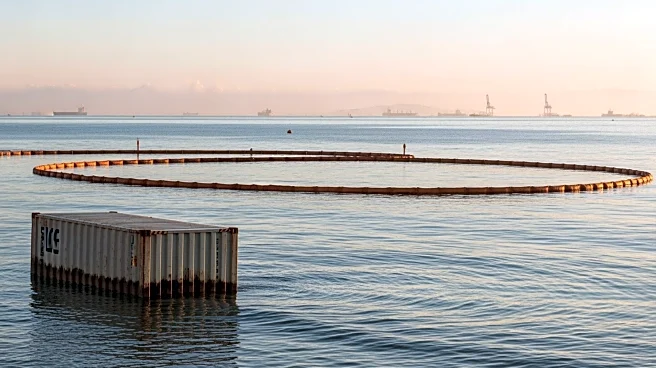What's Happening?
ExxonMobil is under scrutiny as concerns grow over the future of its Fife Ethylene Plant in Scotland. The company is reportedly considering selling or shutting down the plant as part of a broader reorganization of its European chemical operations. This
move has sparked fears among local communities, unions, and government officials about potential job losses and economic impacts. The plant, which produces ethylene used in various industries, supports around 500 jobs. Despite ongoing operations, ExxonMobil has not provided clear details on its plans, leading to speculation and calls for transparency from UK ministers and local representatives.
Why It's Important?
The potential closure or sale of the Fife Ethylene Plant could have significant implications for the local economy and the broader European chemical supply chain. The plant is a key producer of ethylene, a vital component in manufacturing plastics and other products. Job losses at the plant would exacerbate existing challenges in Scotland's oil and gas sector, which has already seen significant redundancies. Additionally, ExxonMobil's restructuring reflects broader trends in the energy industry, where companies are reevaluating their operations in response to regulatory pressures and market conditions. The situation highlights the tension between economic interests and environmental regulations in Europe.
What's Next?
ExxonMobil's decision regarding the Fife Ethylene Plant remains uncertain, with several possible scenarios including sale, closure, or repurposing of the site. The company is exploring options to sell its European chemical plants, and if buyers do not emerge, it may opt for a managed shutdown. Local and national governments are monitoring the situation closely, but have yet to offer concrete plans to mitigate potential job losses. The outcome will depend on ExxonMobil's strategic priorities and the regulatory environment in Europe, which could influence its long-term presence in the region.
Beyond the Headlines
The situation at the Fife Ethylene Plant underscores the broader challenges facing the petrochemical industry in Europe, where regulatory pressures and market dynamics are prompting companies to reassess their operations. The potential closure of the plant raises questions about the future of industrial sites in regions transitioning away from fossil fuels. It also highlights the need for a balanced approach to environmental regulation that considers economic impacts and supports sustainable industrial practices. The community's concerns about pollution and health impacts further complicate the narrative, emphasizing the importance of corporate responsibility and community engagement.















